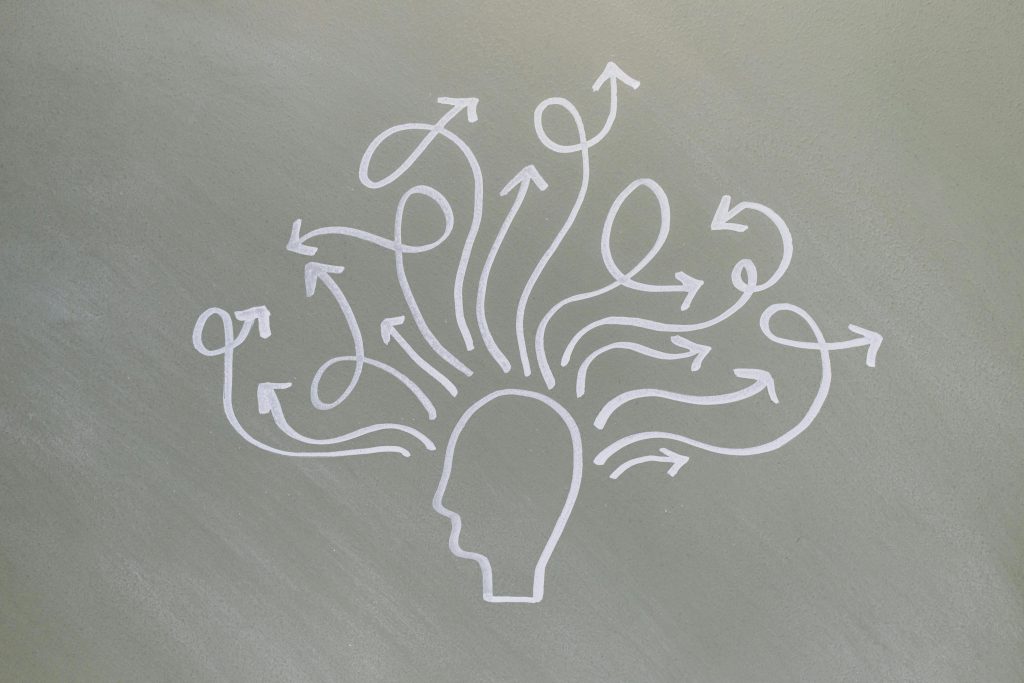Drug use comes with many risks. Among these is drug-induced schizophrenia. This mental illness can cause severe disruption to the life of the person experiencing it, but it is possible to treat it. In this blog, we look at what causes this condition, what having drug-induced schizophrenia is like, and how you can treat it.
If you have a problem with drugs alongside schizophrenia and would like professional support, contact Liberty Home today on +27 021 300 3455.
What is Drug-Induced Schizophrenia?
Drug-induced schizophrenia is the onset of schizophrenic symptoms following drug use. Unlike primary schizophrenia, where symptoms happen without a direct external trigger, drug-induced schizophrenia is directly linked to substance use. Symptoms include paranoia, auditory and visual hallucinations, and delusional thinking.
Substances Linked to Drug-Induced Schizophrenia
Several substances have been implicated in triggering drug-induced schizophrenia. These include:
Cannabis
Cannabis use, especially in high doses or with high potency strains, has been associated with an increased risk of schizophrenia. THC, the psychoactive component of cannabis, can induce psychotic symptoms in some users.
Amphetamines
Stimulants like methamphetamine and other amphetamines can lead to either drug-induced schizophrenia or acute psychotic episodes resembling schizophrenia. Chronic use increases this risk, with symptoms often persisting long after the drug’s effects have worn off.
Cocaine
Cocaine use, particularly heavy or prolonged use, can result in paranoia and hallucinations similar to those seen in schizophrenia.
Hallucinogens
Drugs like LSD and psilocybin mushrooms can cause hallucinations and delusional thinking. While these effects are usually temporary, in some cases, they can trigger lasting psychotic symptoms.
Synthetic Cannabinoids
Also known as “spice” or “K2,” synthetic cannabinoids are linked to severe psychotic reactions, sometimes leading to long-term mental health issues.
What Happens in Drug-Induced Schizophrenia?
The exact mechanisms through which substances induce schizophrenia-like symptoms are not fully understood. However, these factors may play a part:
Neurotransmitter Imbalance
Many drugs that induce schizophrenia affect the brain’s neurotransmitter systems. THC and synthetic cannabinoids interact with the endocannabinoid system, while amphetamines and cocaine increase dopamine levels. Neurotransmitter imbalance can lead to psychotic symptoms.
Neuroinflammation
Substance use can lead to inflammation in the brain, which has been linked to psychotic disorders. Chronic drug use can exacerbate neuroinflammation, potentially triggering schizophrenia in susceptible people.
Genetic Predisposition
People with a family history of schizophrenia or other mental illnesses are more vulnerable to drug-induced schizophrenia. Genetic factors influence how a person’s brain responds to substances, increasing the risk of developing psychosis.
Neurodevelopmental Impact
Drug use during critical periods of brain development can have long-lasting effects on brain structure and function. This period is crucial for the maturation of neural circuits, and substance use can disrupt this process, increasing the risk of schizophrenia.
Treatment of Drug-Induced Schizophrenia at Rehab Centers
Addiction treatment centers that also treat co-occurring disorders typically offer a multifaceted approach to care, involving a number of different therapeutic strategies and support systems. Here are the key components of this type of treatment for this condition:
Detoxification and Medical Stabilization
If the person suffering from drug-induced schizophrenia is dependent on a substance or substances, the first step is detoxification, where the person is cared for while going through withdrawal symptoms. Medical stabilization during this period is critical.
At Liberty Home, we offer our clients detoxification medication where necessary. These medicines ensure safety and comfort throughout the detoxification process.
Comprehensive Psychiatric Evaluation
Patients have a psychiatric evaluation to assess the extent of psychotic symptoms and develop an accurate diagnosis. This helps to distinguish between symptoms caused by substance use and those that might indicate a primary psychiatric disorder.
Individualized Treatment Plans
Patients at the best addiction treatment centres receive individualized treatment plans which are tailored to their specific needs. This plan typically includes:
Medication Management
Antipsychotic medications are prescribed to manage psychotic symptoms, along with medications to address withdrawal symptoms and any other co-occurring mental health conditions.
Therapy
Addiction treatment centres use Cognitive Behavioral Therapy (CBT) and other therapeutic modalities to help patients understand the relationship between their substance use and psychotic symptoms. Therapy also helps patients develop coping strategies and relapse-prevention techniques.
Dual-Focused Therapy Sessions
Dual-focused therapy sessions are designed to address substance use and mental health simultaneously. Patients are led to explore the underlying issues contributing to their substance use and psychosis. This approach helps patients gain insight into their conditions and develop healthier coping mechanisms.
Group Therapy and Peer Support
Group therapy provides a supportive environment where patients can share their experiences and learn from others facing similar challenges. Peer support groups, such as 12-step programs, offer additional encouragement and accountability, helping those with drug-induced schizophrenia stay committed to their recovery goals.
At Liberty Home, we encourage our clients to attend 12-step programs, as these groups provide clients with a program that can enhance their recovery, as well as additional support once they leave our centre.
Family Involvement and Education
Involving family members in the treatment process can be incredibly beneficial. Family therapy sessions educate loved ones about drug-induced schizophrenia and teach them how to support the patient’s recovery. A strong support system is crucial for long-term success.
Relapse Prevention Planning
Successful treatment of drug-induced schizophrenia always requires relapse prevention planning. Patients learn to identify triggers and high-risk situations, develop coping strategies, and create a plan for maintaining sobriety and mental stability. Regular follow-up appointments and support group meetings are integral to this plan.
Treatment for Drug-Induced Schizophrenia at Liberty Home
People with addiction problems often have an underlying mental health problem. In drug-induced schizophrenia, this condition is often particularly pronounced. Treatment is possible, and it is then possible to go on to live a full life.
For more information on how we treat drug-induced schizophrenia, contact us today at +27 021 300 3455



